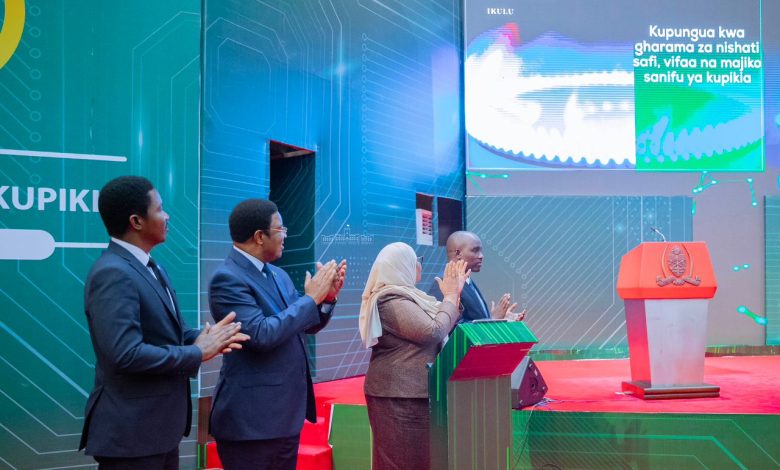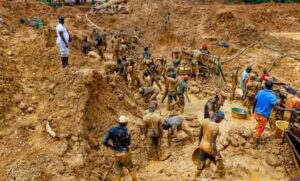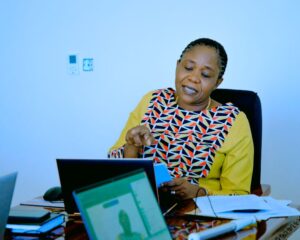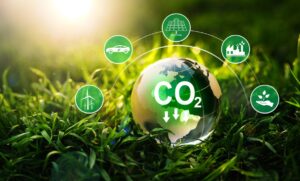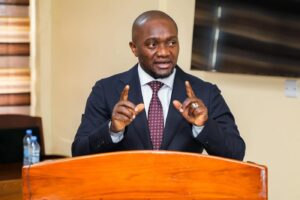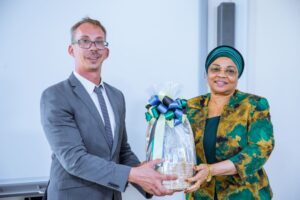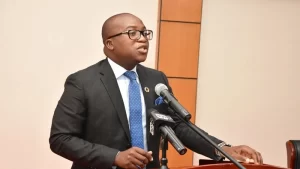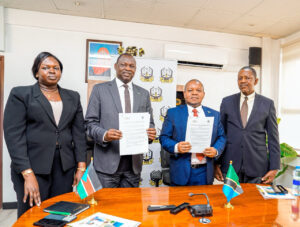- Clean cooking is also an economic accelerator, particularly for women-led businesses, clean fuel entrepreneurs, and innovators in energy-efficient technologies
By Business Insider Reporter
In an era where climate urgency collides with deep-rooted energy poverty, Dr. Samia Suluhu Hassan, President of the United Republic of Tanzania, is emerging as one of the most visionary and decisive leaders shaping Africa’s – and the world’s – clean cooking future.
In her compelling Special Foreword to the African Union’s landmark report titled: “Sustainable Scaling: Meeting the Clean Cooking Challenge in Africa”, President Samia not only outlines the crisis but articulates a transformative agenda centered on equity, innovation, and global solidarity.
This is not just about cleaner stoves or alternative fuels. It’s a full-blown revolution – a “clean kitchens and safe cooking revolution” – with President Samia at the helm, guiding Tanzania, Africa, and the global South toward a healthier, more sustainable, and inclusive energy future.
A Continent at a Crossroads
The numbers are staggering: 2.1 billion people globally – including over 900 million in Africa – still rely on harmful traditional cooking methods. These outdated fuels and practices are responsible for millions of premature deaths, rampant deforestation, and persistent gender inequality.
President Samia frames this not only as a humanitarian and environmental crisis but as a development emergency, one that threatens Africa’s socio-economic aspirations and directly impedes progress on Agenda 2063, the African Union’s master plan for a prosperous future.
Her voice is clear: the clean cooking transition must become a continental imperative – not tomorrow, but now.
Tanzania as a beacon: From policy vision to continental action
At the heart of President Samia’s advocacy is the Tanzania National Clean Cooking Strategy (2024–2034), a comprehensive roadmap with a bold goal: achieving 80% universal access to clean cooking by 2034.
But what sets this strategy apart is its grounding in local context and African realities. Rather than importing foreign solutions wholesale, Tanzania is leveraging indigenous resources, such as natural gas and other renewable options, while customizing solutions to fit cultural and socio-economic conditions.
President Samia doesn’t stop at domestic policy. Through regional leadership, she’s ensuring that Tanzania’s clean energy transformation inspires systemic change across Africa. Her launch of the African Women Clean Cooking Support Programme (AWCCSP) at COP28 reflects an acute understanding of the gendered dimensions of energy poverty.
Women and girls, who bear the brunt of indoor air pollution and time lost to firewood collection, are now being placed at the center of the solution – not just as beneficiaries, but as leaders, entrepreneurs, and change agents.
Mobilizing Finance and Global Partnerships
Her leadership came to full display during the inaugural Clean Cooking Summit in Africa, which she co-chaired with international dignitaries including Norway’s Prime Minister Jonas Gahr Støre and IEA Executive Director Dr. Fatih Birol.
This summit was not just a talk-shop – it was a catalyst. It produced a landmark declaration adopted by all participating African nations and, significantly, unlocked US$2.2 billion in financial pledges from public and private sector actors.
This feat was not accidental. It is the result of deliberate diplomacy, credibility, and leadership – all traits that have become hallmarks of President Samia’s regional and global energy diplomacy.
ACCP: Institutionalizing the Revolution
Building on these gains, President Samia champions the African Clean Cooking Programme (ACCP) as a framework to coordinate, institutionalize, and scale ongoing efforts continentally. ACCP aligns with the goals of AWCCSP but adds structural muscle: education, training, research, financing, and innovation.
For example, under the ACCP, efforts are underway to develop context-specific clean cooking fuel baskets, combining locally produced solutions with international technology transfers. President Samia emphasizes that clean cooking must be integrated into national energy and development planning, not treated as an afterthought or niche concern.
Clean Kitchens, Cleaner Economies
President Samia’s approach links clean cooking to broader themes of economic justice and resilience. A clean kitchen is not just about the stove – it’s about creating jobs, freeing up time for education, and lowering health costs. Clean cooking is also an economic accelerator, particularly for women-led businesses, clean fuel entrepreneurs, and innovators in energy-efficient technologies.
Tanzania is setting the pace, but President Samia is calling for a continental relay race – with countries like Kenya, Ghana, and even India providing complementary lessons in how to localize global ambition.
From Local Stoves to Global Solidarity
Perhaps the most powerful element of her message is the call to global solidarity. President Samia underscores that this transformation cannot happen in silos. African leadership must be met with international partnership, whether through climate finance, technical assistance, or trade agreements that support Africa’s clean cooking value chains.
The call is both practical and moral. Without global support, Africa risks being left behind in the energy transition. But with it, the continent can leapfrog old technologies and become a leader in clean, inclusive energy systems.
Lighting the Fire of a Global Movement
In the compelling Foreword, President Samia does not merely introduce a report – she lights a fire. A fire of vision, urgency, and actionable solutions. Her message is one of empowered pragmatism: the crisis is real, the solutions exist, and the time to act is now.
As the world faces growing energy and climate challenges, Tanzania’s clean kitchens revolution under President Samia Suluhu Hassan offers a replicable model of leadership, innovation, and solidarity. It is a revolution where smoke-free homes signal more than improved air – they signal a cleaner, fairer, and more hopeful future for Africa and the world.

